Guest Post: Lorena A. Barba
This article originally ran on the Open edX Universities Symposium’s website on September 3, 2015
Prof. Carolyn Rosé’s research focuses on modeling conversations between students in learning contexts to find out what it is about conversations that makes them valuable for learning. To study conversations, she uses text mining, machine learning, and computational discourse analysis. With this new understanding, her goal is to design interventions to support learning in online settings.
Carolyn Rose, Associate Professor at Carnegie Mellon University, started a working group called DANCE with the goal of developing extensions for the Open edX platform to enhance discussions for collaborative learning.
Q&A
What is text mining?
Text mining means applying machine learning to textual data, sometimes in addition to other types of data. The target is to extract meaningful features from natural language and make predictions about situations that are of interest. In our work, we focus on conversational data, and look for patterns that reflect social processes. We build machine learning models using research from the fields of sociolinguistics, discourse analysis, social psychology, and rhetoric.
What does this mean for text and conversations related to learning?
Many researchers in Learning Sciences study learning by observing learners interacting, using both quantitative and qualitative methods. Text mining is our method of observing learning interactions. We don’t attempt to replace existing methods with text mining, we adapt them to use text mining.
What is a “conversational agent” and how does it use machine learning?
Conversational agents (also known as dialogue systems) are state-based computer programs that interact with human beings through natural language. They interact through text, speech, images or video. Their behavior draws from machine learning in a variety of ways. We use machine learning and text mining to monitor group interactions in real time to detect opportunities for agents to intervene. Machine learning here is just a tool in the hands of researchers who have insights into how language reflects social processes. Only with these insights can we design models able to detect opportunities for meaningful intervention.
What do people mean by “social learning” and why is it a good thing?
Social learning includes any learning experience involving more than one student, with an opportunity for communicating and collaborating. The value of these learning experiences lies in seeing the learning material through the distinct lenses of other people’s viewpoints. This offers the opportunity of reflecting on the reasons for one’s own representation of knowledge. Social connections can also be motivating.
Why did you start the social-learning-in-edX initiative (called DANCE)?
Computer-Supported Collaborative Learning (CSCL) is my research area. Our community has substantial knowledge about how to use technology to support collaborative and discussion-based learning. My team started DANCE with the goal of enabling the CSCL community to contribute its accumulated wisdom and technology to MOOCs.
What tools do you currently have available for the OpenEdX platform?
We are very happy to share the interventions we deployed in the Fall 2014 Data, Analytics, and Learning MOOC, such as agent-supported collaborative chat and a social recommender to facilitate help exchange. We are developing xBlocks that will make it easy for MOOC developers to use intelligent support of group interactions and learning. Our hope is to release a new xBlock to integrate social recommendation in edX discussion forums in Fall 2015 (via the DANCE website). We would be very happy to partner with developers and researchers interested in using our approach.
How do you envision text and social-based tools influencing learning in the OpenEdX platform?
One overarching goal is to create more of a sense of community connected with the MOOC experience. Research on social support in online communities argues strongly for its value in increasing commitment and decreasing attrition. We know there is a lot of room for improvement in facilitating help exchange in MOOCs.
Many forms of social learning have proven valuable in residential settings but so far have not been part of the typical MOOC experience; we would like to enable them there. This includes collaborative problem solving, as well as project- and problem-based learning.
Do your tools also apply in residential settings? And if so, are you currently running residential experiments?
We were running studies in residential settings for several years before beginning our research in online learning and MOOC settings. This work was conducted in middle school, high school, and college courses in a variety of STEM topics.
We are not currently running any residential studies, but several faculty at Carnegie Mellon are engaged in a new Writing Across the Disciplines effort, connected with Carnegie Mellon’s Simon Initiative. We are excited to see how that will take shape and how we can get involved.
Learn more!
Links
- Research page of Prof. Carolyn Penstein Rosé at Carnegie Mellon University
- Website of DANCE edX Satellite Group for social learning in OpenEdX
- [Flash Video, 51 min] Talk: “Computational Analysis of Social Positioning in Collaborative Learning Interactions” (June 2012)
Interview with Carolyn Rosé, by Phil Hill of eLiterate TV — February 2014
Prof. Rosé explains her research project funded by the MOOC Research Initiative.
ABOUT THE AUTHOR
Lorena A. Barba is Associate Professor of Mechanical and Aerospace Engineering at the George Washington University. She taught the first GW MOOC, titled “Practical Numerical Methods with Python.”

 En Español
En Español



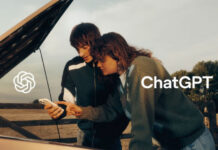

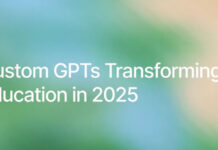

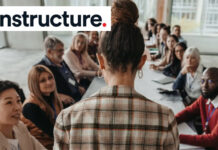
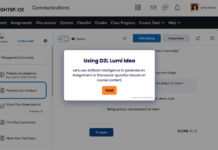

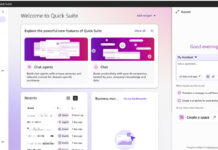
![OpenAI Released Apps that Work Inside ChatGPT and an SDK [Video]](https://iblnews.org/wp-content/uploads/2025/10/openaieventday-218x150.jpg)









